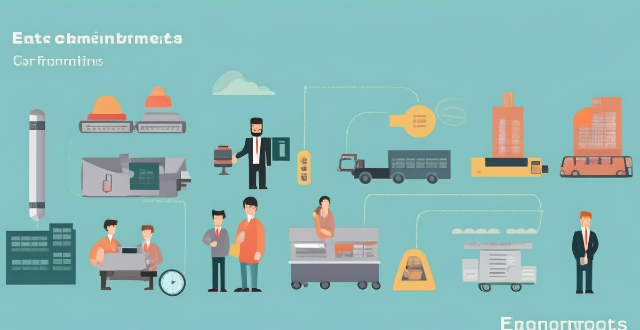The article explores the potential of carbon credits as a sustainable source of income for developing countries, highlighting their benefits in revenue generation, sustainable development, and international cooperation. However, it also underscores the challenges such as market volatility, implementation complexities, and ensuring environmental integrity. The conclusion emphasizes that with robust frameworks and transparent monitoring, carbon credits can be a cornerstone of sustainable development strategies for developing countries.

Can Carbon Credits be a Sustainable Source of Income for Developing Countries?
Carbon credits, also known as carbon offsets, are units representing the reduction or removal of one ton of carbon dioxide or its equivalent from the atmosphere. These credits have been touted as a potential source of income for developing countries, especially those rich in natural resources and with lower carbon footprints. However, the question remains: can carbon credits indeed serve as a sustainable source of income for these nations?
The Potential Benefits
Revenue Generation
- Immediate Financial Inflows: Carbon credits can provide immediate financial benefits through international markets where these credits are traded. This can be a significant boost to countries with limited export sectors.
- Incentivizing Conservation: By offering financial rewards for maintaining forests and other carbon sinks, there's an inherent incentive to protect these resources rather than exploit them for short-term gains.
Sustainable Development
- Promotion of Green Energy: To generate carbon credits, countries might invest in renewable energy projects which can reduce their reliance on fossil fuels and improve local air quality.
- Ecosystem Preservation: Projects like reforestation not only sequester carbon but also restore ecosystems, promoting biodiversity and enhancing natural resilience against climate change impacts.
International Cooperation
- Access to Technology and Funds: Through carbon credit initiatives, developing countries can gain access to advanced technologies and funding from developed nations seeking to offset their emissions.
- Global Market Engagement: Participation in the global carbon market allows these countries to engage economically on a broader scale, potentially opening up more avenues for growth and investment.
Challenges and Considerations
Market Volatility
- Fluctuating Prices: The value of carbon credits can fluctuate based on global policies, economic conditions, and technological advancements. This unpredictability can affect revenue stability.
- Dependency Risk: Overreliance on carbon credits as a primary income source could be risky if the market collapses or dries up due to saturation or policy changes.
Implementation Challenges
- Monitoring and Verification: Accurately monitoring and verifying carbon savings is crucial for the credibility of the system but can be complex and costly.
- Equitable Distribution: Ensuring that the benefits from carbon credits reach local communities and contribute to broader development goals requires careful planning and governance.
Environmental Integrity
- Risk of Greenwashing: There's a danger that some projects may be more about generating credits than actual environmental improvement, leading to greenwashing accusations.
- Perverse Incentives: Without proper oversight, there could be incentives to degrade environments initially to then 'restore' them for carbon credits, undermining conservation efforts.
Conclusion
Carbon credits have the potential to be a sustainable source of income for developing countries, offering financial benefits, promoting sustainable development, and fostering international cooperation. However, for this potential to be realized, it is crucial to address the challenges related to market volatility, implementation complexities, and ensuring environmental integrity. With robust frameworks, transparent monitoring, and equitable distribution mechanisms, carbon credits can indeed become a cornerstone of sustainable development strategies for many developing countries.